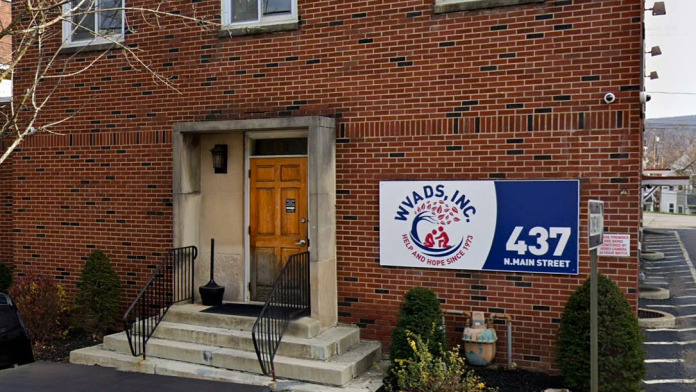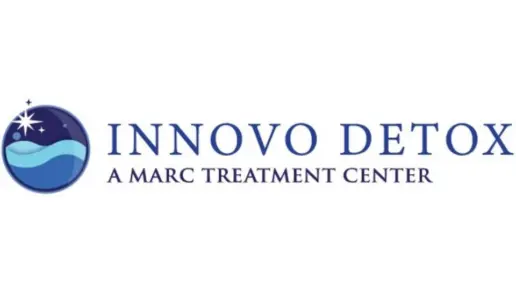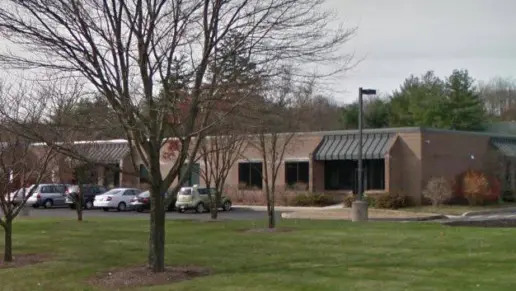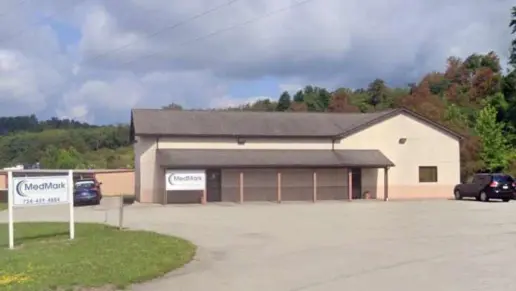About WVADS, Inc.
Popular for its countless outdoor recreation opportunities from kayaking to hiking, Wilkes Barre, Pennsylvania, is home to WVADS, Inc. For almost 50 years this nonprofit agency has offered substance use disorder prevention and treatment services for adults. They accept many private insurers and may provide funding based on availability.
Their intensive outpatient program provides a flexible option to get the care you need while living at home. They provide nine hours of weekly morning, afternoon and evening group sessions. You’ll also meet with a counselor privately every week. If you’re battling opioid addiction you may also participate in medication assisted treatment (MAT) with Suboxone.
One standout feature that caught my eye was their outpatient gambling treatment. While often overlooked gambling can be just as detrimental as alcohol and drug addictions. They offer a safe space with a certified counselor to help you overcome these challenges. You’ll benefit from understanding gambling addiction and gaining essential coping skills to promote sustained recovery.
Another cool element I noticed was their DUI services. They provide assessments and courses to help you reinstate your license. They also offer prevention ceremonies in the community. These events illustrate the dangers of driving under the influence and distracted driving. You and your family can benefit from learning more about substance dependency and how to take essential safety precautions.
Lastly, I think their family program is excellent. This free biweekly group provides education and support for your family members. Your family will have a safe space to connect with others on similar paths. They’ll also learn vital skills, like setting boundaries and healthy communication to support themselves and you throughout this journey.
Latest Reviews
Rehab Score
Gallery

Location
Other Forms of Payment
Private insurance refers to any kind of healthcare coverage that isn't from the state or federal government. This includes individual and family plans offered by an employer or purchased from the Insurance Marketplace. Every plan will have different requirements and out of pocket costs so be sure to get the full details before you start treatment.
Self-pay involves paying for treatment out of your own pocket. You can use savings or credit, get a personal loan, or receive help from family and friends to fund your treatment. If you don't have insurance or your insurance plan doesn't cover a specific program, self-pay can help ensure you still get the care you need.
Financial aid can take many forms. Centers may have grants or scholarships available to clients who meet eligibility requirements. Programs that receive SAMHSA grants may have financial aid available for those who need treatment as well. Grants and scholarships can help you pai for treatment without having to repay.
Medicaid is a state based program that helps lower-income individuals and families pay for healthcare. Medicaid covers addiction treatment so those enrolled can use their coverage to pay for rehab. When a program accepts Medicaid the client often pays very little or nothing out of their own pocket.
Military members, veterans, and eligible dependents have access to specific insurance programs that help them get the care they need. TRICARE and VA insurance can help you access low cost or no cost addiction and mental health treatment. Programs that accept military insurance often have targeted treatment focused on the unique challenges military members, veterans, and their families face.
Addiction Treatments
Levels of Care
Treatments
The goal of treatment for alcoholism is abstinence. Those with poor social support, poor motivation, or psychiatric disorders tend to relapse within a few years of treatment. For these people, success is measured by longer periods of abstinence, reduced use of alcohol, better health, and improved social functioning. Recovery and Maintenance are usually based on 12 step programs and AA meetings.
Drug rehab in Pennsylvania is devoted to the treatment of addiction. Levels of care, treatment methods, and settings differ, but the aim of each program is to end drug dependency and empower participants to achieve long-term recovery.
Many of those suffering from addiction also suffer from mental or emotional illnesses like schizophrenia, bipolar disorder, depression, or anxiety disorders. Rehab and other substance abuse facilities treating those with a dual diagnosis or co-occurring disorder administer psychiatric treatment to address the person's mental health issue in addition to drug and alcohol rehabilitation.
A combined mental health and substance abuse rehab has the staff and resources available to handle individuals with both mental health and substance abuse issues. It can be challenging to determine where a specific symptom stems from (a mental health issue or an issue related to substance abuse), so mental health and substance abuse professionals are helpful in detangling symptoms and keeping treatment on track.
Opioid rehabs specialize in supporting those recovering from opioid addiction. They treat those suffering from addiction to illegal opioids like heroin, as well as prescription drugs like oxycodone. These centers typically combine both physical as well as mental and emotional support to help stop addiction. Physical support often includes medical detox and subsequent medical support (including medication), and mental support includes in-depth therapy to address the underlying causes of addiction.
Programs


Clinical Services
Group therapy is any therapeutic work that happens in a group (not one-on-one). There are a number of different group therapy modalities, including support groups, experiential therapy, psycho-education, and more. Group therapy involves treatment as well as processing interaction between group members.
In individual therapy, a patient meets one-on-one with a trained psychologist or counselor. Therapy is a pivotal part of effective substance abuse treatment, as it often covers root causes of addiction, including challenges faced by the patient in their social, family, and work/school life.
Contact Information
437 N Main St
Wilkes-Barre, PA 18705


